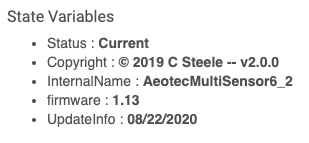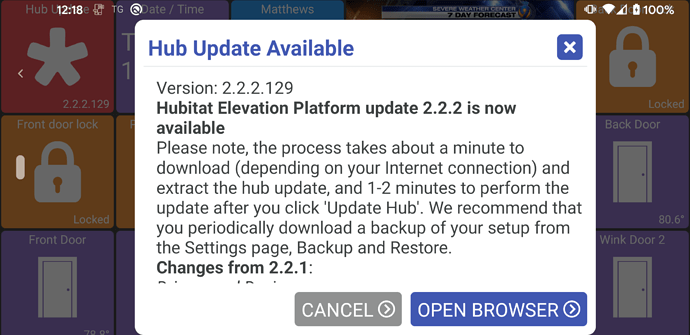Before importUrl existed, or was commonly used, someone added the import URL to the top of their code. I saw it and the light went on and I added it to all of my code. I also rabble-roused as many as I could to include... and since it's a once per lifetime addition, I seemed to have great success.  (Ok, others did this too but I'm happy to pretend it was all my effort
(Ok, others did this too but I'm happy to pretend it was all my effort  ) Then importUrl came along and again, because it was simple and one off, it was mostly included.
) Then importUrl came along and again, because it was simple and one off, it was mostly included.
Then, for me, Cobra's idea of including a weekly check against a file for an update occurred and while I eventually deviated in the file format, for my own efficiency in updating the file, I still, to this day include the feature. Thus I must maintain TWO files containing the same info, but in two formats. Maybe someday that burden will grow to be worth the effort to change all my code to use a single file, but that day has not come, yet.
For me, I feel that a release of updated code is dominated by the version updating effort. I won't release tiny changes because the 5 mins it takes to update the version files (all of them) encourages ME to delay/defer. 


Which is easier to update/maintain??
{
"packageName": "Auto_Off",
"author": "csteele",
"dateReleased": "2020-10-11",
"apps": [
{
"id": "b03472ad-a305-4544-8e76-1d5b39e750b0",
"name": "Auto_Off",
"namespace": "csteele",
"location": "https://raw.githubusercontent.com/csteele-PD/Hubitat-public/master/Auto_Off/Auto_Off.groovy",
"version": "1.0.1",
"oauth": false,
"primary": false,
"required": true
},
{
"id": "dd3ec702-7bee-4a46-aad4-b9a53145d9ec",
"name": "Auto_Off device",
"namespace": "csteele",
"location": "https://raw.githubusercontent.com/csteele-PD/Hubitat-public/master/Auto_Off/Auto_Off_c.groovy",
"version": "1.0.3",
"oauth": false,
"primary": false,
"required": true
},
{
"id": "887bf9e2-41ce-483b-a9d7-121a26d76eb1",
"name": "Auto_Off poll",
"namespace": "csteele",
"location": "https://raw.githubusercontent.com/csteele-PD/Hubitat-public/master/Auto_Off/Auto_Off_o.groovy",
"version": "1.0.1",
"oauth": false,
"primary": false,
"required": true
}
]
}
OR
{
"author": "C Steele",
"comment": "",
"copyright": " Ⓒ 2020 cSteele",
"application": {
"Auto_Off": {"ver": "1.0.1", "updated": "10/14/2020"},
"Auto_Off_c": {"ver": "1.0.3", "updated": "10/14/2020"},
"Auto_Off_o": {"ver": "1.0.1", "updated": "10/14/2020"}
},
"driver": {
}
}
Additionally, all my code has:
public static String version() { return "v1.0.2" }
which is probably one of the rare formats... defining it as a method.







